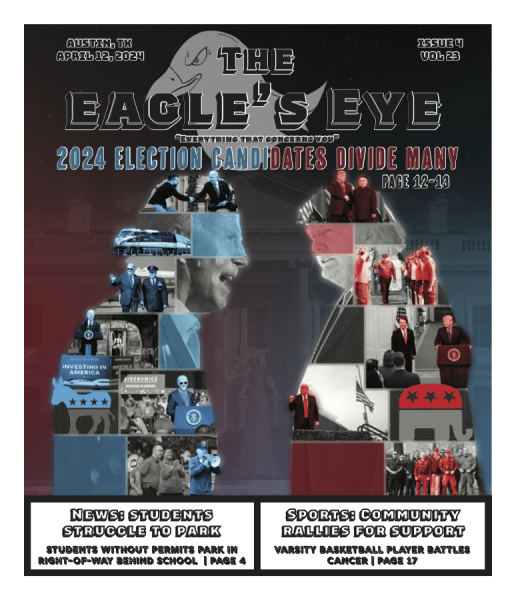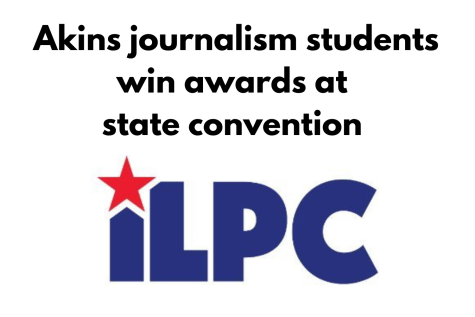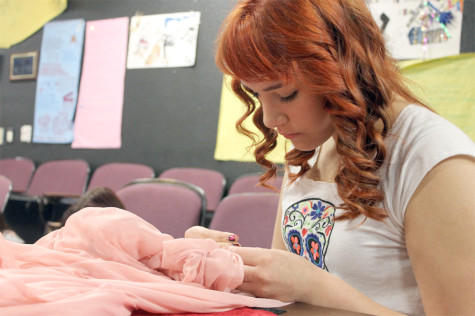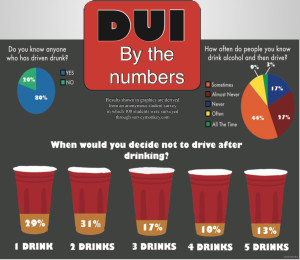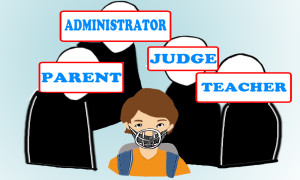Students question life after high school
October 31, 2013
Sonny Zuniga
Students Life Editor
College has been branded with a scalding hot cattle iron into our heads since we walked into the doors of elementary school. It has been pushed into our brains ever since. We were taught that going to college was the only way to ensure a successful future and we had to strive in our academics to get there.
Being college ready can be put into perspective on a student’s willingness to learn.
The basic steps to teacher-student teamwork, to where the hard work put forth by both the student and teacher inspires the student and supports them on their journey.
My belief on how to get into college is having a plan and teachers being the guide to helping you fulfill that plan. I’ve learned that mapping out your course through high school helps keep you on track and the support from school has really helped me get on course.
My education at Akins has never been bad, year-by-year, every teacher has taught me different methods of tackling work and getting on track to college. It involves taking the time out of your day to come in for tutorials, reviewing countless times for quizzes, and mainly just caring where you’re going to lead up to in life and the changes you can make.
College is pushed upon us as the finish line —as the grand win. When we were kids it seemed so easy. The pressure of going to college is high, and it scares students but knowing I’m prepared and I’ve taken every chance to understand the college concept has made the ride there a lot smoother.
Normally, I would feel tense and nervous just thinking about college, However, knowing that I had a backbone to always help made the difference has helped me figure out exactly what type of college I want to attend and what my major would be.
The job of a teacher is to push us to work, to give us the drive to want to succeed and go bigger in life to have the want to push our limits. Having such teachers at Akins who attended places like the University of Texas and Texas State to a variety of other colleges, hearing their stories makes me want to work harder to go even farther. I want to, be proud that I could put the work in and get out more than I ever hoped for.
Caitlin Starks
Managing editor
I don’t think I’m ready for college.
I just don’t think that I have had a chance to develop the skills I need to be successful at a four-year university.
Though academically my grades are stellar and numerous colleges send me pamphlets all the time, I don’t like to talk to people I don’t know outside of electronic devices and when I can avoid it I generally don’t.
Our generation has always had people or mediums to lean on instead of putting on our big boy pants and getting things done ourselves. Because of this, a vast majority of us aren’t ready to be independent and be successful in college.
We have always been able to rely on email to contact our teachers. This causes students to only talk to their teachers by email when they see them face-to-face all the time. Then the students start to become anxious when they have to talk face-to-face with someone because they aren’t used to it.
A lot of students also hide behind their parents when they are in trouble, missing an assignment, or just generally stressed out. They tell their parents to interact with the teacher and figure out what is going on rather than facing the teacher themselves.
In that scenario, it makes the teachers look bad for not effectively communicating with the student but its actually the student’s fault for involving a parent if no parent is needed.
I have never willingly let my parents interact with my teachers when I can do it myself but I have been known to use email to communicate with teachers rather than talking to them face-to-face.
How are students supposed to learn how to effectively communicate face-to-face with professors or professionals in the world of work if this behavior has been allowed their whole lives.
I think that schools should focus more on teaching students skills that they can use for the rest of their lives and less on testing students on skills that the majority of them will only remember for the short term.





